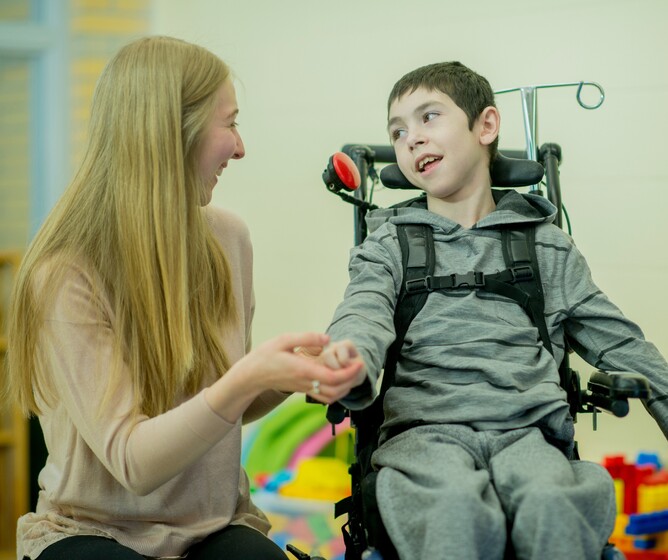Therapeutic Approaches: How Physiotherapy Helps Manage Cerebral Palsy
Cerebral palsy (CP) is a neurological condition that affects movement, posture, and motor function. It occurs due to damage to the brain before, during, or shortly after birth. While there is no cure for CP, early intervention and ongoing therapy can significantly improve mobility, independence, and quality of life. This blog post will explore how physiotherapy plays a crucial role in supporting children and adults with cerebral palsy.
Understanding Cerebral Palsy and Its Impact
Cerebral palsy can manifest in various ways, including spastic CP (characterized by muscle stiffness), dyskinetic CP (involving involuntary movements), and ataxic CP (associated with balance and coordination difficulties). The condition can be caused by complications during pregnancy, birth, or early infancy, such as infections, brain bleeds, or lack of oxygen. Individuals with CP often face challenges such as muscle weakness, spasticity, difficulty walking, and coordination issues. These symptoms can impact their daily activities, self-esteem, and social interactions.
The Role of Physiotherapy in Managing Cerebral Palsy
Physiotherapy is a vital component of CP management, aiming to improve mobility, strengthen muscles, and enhance overall function. Physiotherapists work closely with individuals with CP to develop personalized treatment plans tailored to their specific needs.
Key Physiotherapy Techniques for Managing Cerebral Palsy
Stretching and Range of Motion Exercises: These exercises help maintain flexibility, reduce muscle stiffness, and prevent contractures. They involve gentle stretching of tight muscles and movements to improve joint range of motion.
Strengthening and Conditioning: Building muscle strength and endurance is essential for supporting functional movements. Physiotherapists use resistance bands, weights, and bodyweight exercises to target specific muscle groups.
Gait Training and Mobility Assistance: Improving walking patterns and balance is a common goal in CP management. Physiotherapists use techniques like treadmill training and mobility aids (walkers, crutches) to assist individuals in developing more efficient gait patterns.
Neurodevelopmental Treatment (NDT): NDT focuses on improving postural control and facilitating more efficient movement patterns. By addressing abnormal muscle tone and movement patterns, NDT can help individuals with CP achieve greater independence.
Aquatic Therapy: Water-based therapy can be highly beneficial for individuals with CP. The buoyancy of water reduces the impact of gravity, making it easier to perform exercises and movements. Aquatic therapy can also help improve muscle relaxation, strength, and coordination.
Innovative Physiotherapy Approaches for CP Management
Recent advancements in technology have led to the development of innovative physiotherapy techniques for CP management. Robotic-assisted therapy, virtual reality, and adaptive equipment can provide targeted and interactive rehabilitation experiences. Additionally, ongoing research is exploring new approaches to improve outcomes for individuals with CP.
Tips for Parents and Caregivers of Individuals with Cerebral Palsy
Parents and caregivers play a crucial role in supporting their child's physiotherapy at home. To create a conducive environment for progress, ensure your home is free from hazards that could hinder mobility. Encourage physical activity by incorporating fun and engaging activities into your child's daily routine. Consistently practicing exercises outlined in the physiotherapy program helps reinforce the skills learned during therapy sessions. Maintaining a positive outlook and offering encouragement can further support your child in overcoming challenges and reaching their full potential.
Conclusion
Physiotherapy plays a vital role in managing cerebral palsy by improving mobility, strength, and overall quality of life. Through a combination of stretching, strengthening, gait training, and innovative techniques, physiotherapists can help individuals with CP achieve their goals and live more independent and fulfilling lives.
If you or someone you know is living with cerebral palsy, Holistic Strength offers personalized physiotherapy programs tailored to your unique needs. Our experienced therapists are dedicated to helping you achieve your goals and live a more independent and fulfilling life.
